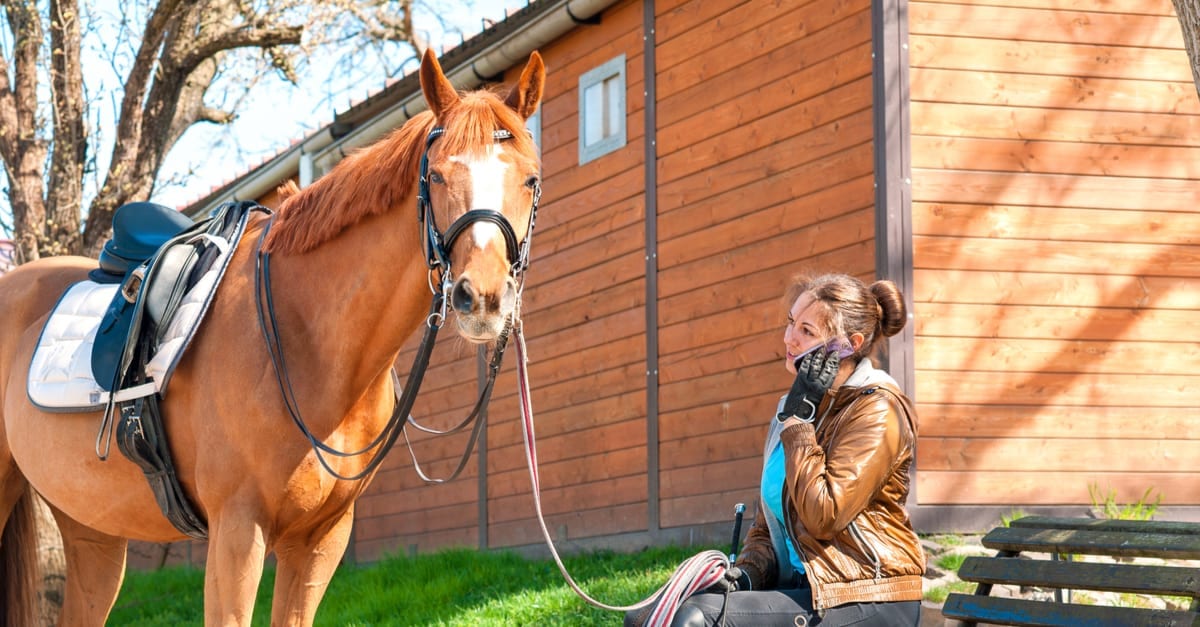Humans Should Control Their Emotions Around Horses
You show up at the barn in a bad mood, grumpy, short-tempered. You snap at the other riders and you raise your voice at a significant other over your mobile phone. Then there’s your horse, wide-eyed and a little nervous, like he’s wondering what’s in it for him.
If you’ve ever had the impression your horse picks up on your emotions, you’re definitely right, according to scientific studies. And one French team has just taken that science a step further: they’ve confirmed that horses can match the emotions of our facial expressions with those of our vocal expressions—which is better than what most humans could do with horses.
“Can we ourselves associate a horse’s precise facial expression with the corresponding vocalization? I’m not so sure!” said Léa Lansade, PhD, of the French Horse and Riding Institute and the National Institute for Agricultural Research’s behaviour science department, in Tours.
Horses, however, are sensitive enough and in tune enough with humans that they can read us pretty well when it comes to emotional expressions, according to Lansade, speaking on the recent work led by her student Miléna Trösch, PhD candidate.
In their study, Lansade, Trösch, and their fellow researchers projected short silent videos of a woman making different facial expressions: one video of joy and one of anger. They projected one video to the left of each horse and the other to the right. Meanwhile, they played short audio clips of a different woman expressing either anger or joy (with voice but no words).
Consistently, the 34 study horses (Welsh pony mares) would stare at the “wrong” face—the one that didn’t match the vocal expression, Lansade said. Although some species tend to look at the “right” image that matches a particular sound, horses usually do the opposite.
For example, horses often stare for long periods of time at things they don’t recognize or don’t seem to understand, like flowers under a jump, a tractor in an otherwise empty lot, or a fallen tree in their pasture. “The horse is certainly very perturbed by this ‘violation of his expectations,’ to use the technical term,” said Lansade.
The horses in Lansade’s team’s study also had more relaxed behaviour and lower heart rates when they heard the joyful vocal expressions, she added. Whether the horses thought these expressions of emotion were directed towards them or not hardly mattered, she said—“they were affected all the same.”
It was particularly surprising how quickly the horses reacted, Lansade explained. Although the mares had had very little interaction with humans (just daily management but no training), they were “highly sensitive” to expressions of human emotions, even though the video and audio clips only lasted a couple of seconds each.
“It was incredible to see how a simple groan of discontentment made their cardiac rhythm shoot up!” said Lansade. “And also, to see how a smile could appease them.”
Lansade’s conclusion? “Manage your emotions around your horses!” she said. “They’re a lot more sensitive than many of us give them credit for, and they’re paying more attention than we might think.”
Knowing how sensitive they are can also help us better communicate with our horses for improved relationships and more ethical training, concluded Lansade.
This is an open access study and you can read it in full here.
Horses categorize human emotions cross-modally based on facial expression and non-verbal vocalizations by Milena Trosch, Florent Cuzol, Celine Parias, Ludovic Calandreau, Raymond Nowak and Lea Lansade was published in Animals in October 2019.



















Trackbacks/Pingbacks